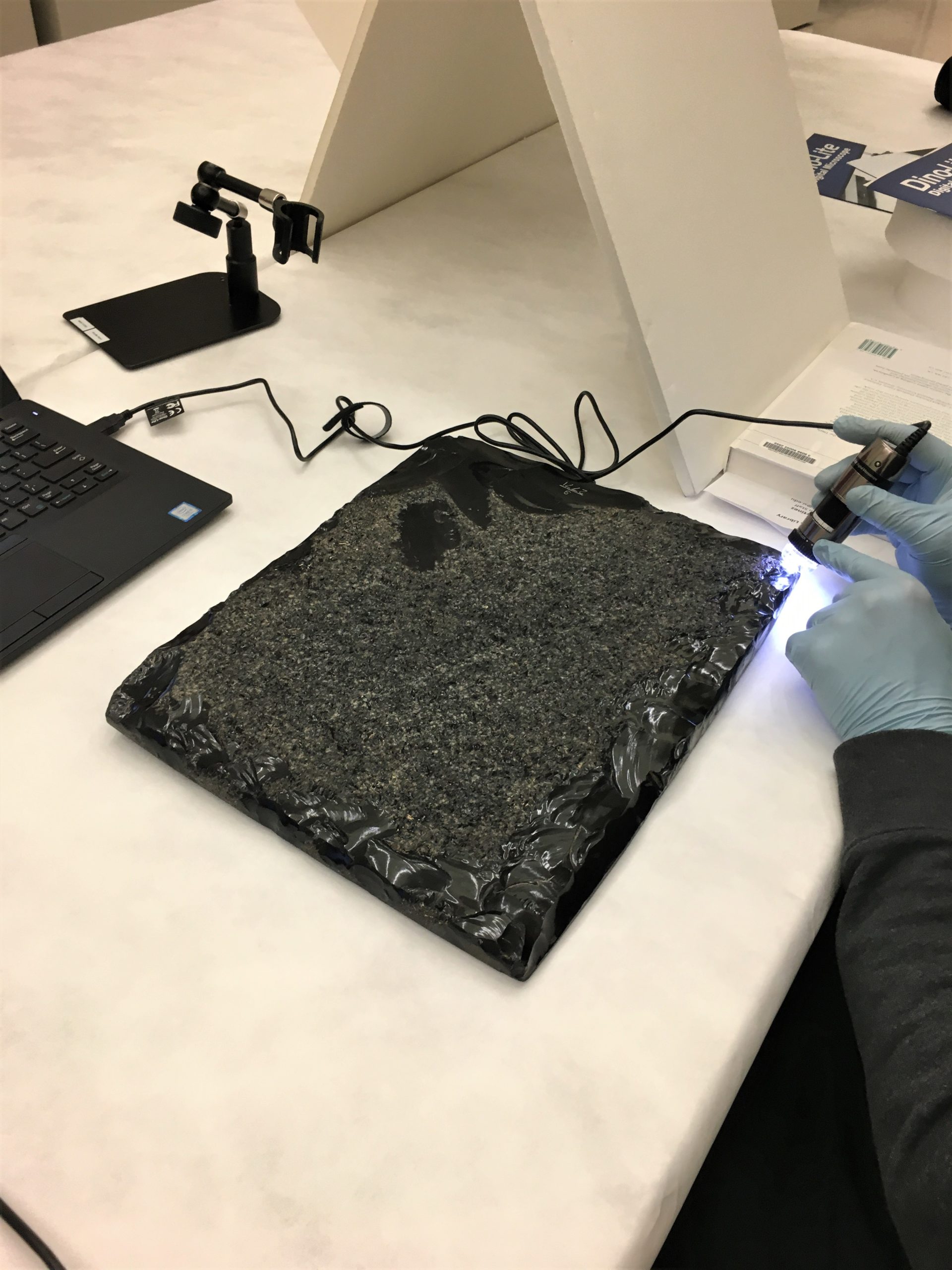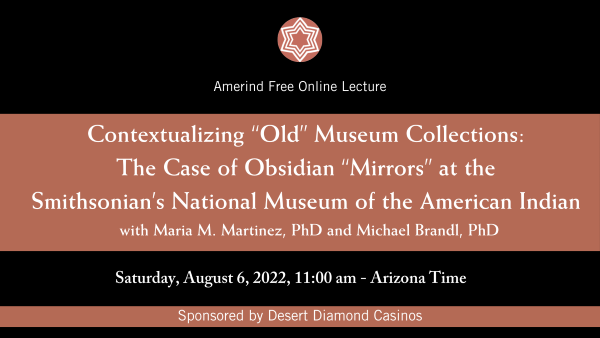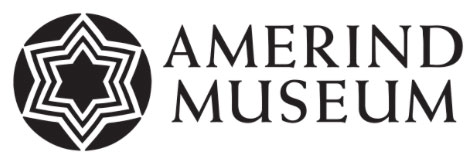
Amerind Free Online Lecture – Contextualizing “Old” Museum Collections: The Case of Obsidian “Mirrors” at the Smithsonian’s National Museum of the American Indian

Amerind Free Online Lecture
Contextualizing “Old” Museum Collections: The Case of Obsidian “Mirrors” at the Smithsonian’s National Museum of the American Indian with Maria M. Martinez, PhD and Michael Brandl, PhD
Saturday, August 6, 2022, 11:00 am – Arizona Time
Sponsored by Desert Diamond Casinos
Anthropological museum collections are an important resource for academic and community-centered research. However, many museum collections have minimal or even lack contextual information. This study exhibits some of the protocols for consulting Indigenous heritage in museum settings and overcomes the challenges related to collections-based research. Recent studies of rectangular polished obsidian items found within museum collections have indicated that these objects were made by Mexican Indigenous artisans during the colonial period for European consumption. Nevertheless, much of this research was not well-grounded within the discipline of anthropology and therefore did not fully address the potential cultures or communities that manufactured these items and the Indigenous and colonial intersections under which they were produced and consumed. We interweave archaeological analytical techniques, provenance and techno-morphological analysis, including experimental archaeology with pre-Columbian archaeological studies, Mesoamerican art and iconography, and historical sources to identify the culture(s) that manufactured rectangular obsidian tablets in the context of Indigenous and colonial entanglements in Mexico. This study in collections-based research contributes to the restoration of ancestral intellectual knowledge and labor to Indigenous peoples that were erased through the process of coloniality, including museum practices of the nineteenth and twentieth centuries.
Maria M. Martinez is associate curator of collections and exhibits at the Amerind Foundation, Inc. She served as a program specialist for research and collections access at the Smithsonian Institution, National Museum of the American Indian, for five years. She received her Ph.D. in anthropology from the University of Texas at Austin in 2013. She continues her research in Maya archaeology as a research fellow at the University of Texas at Austin and with lithic provenance studies at the Austrian Archaeological Institute, Austrian Academy of Sciences. Her research interests are collections-based community-centered research, Indigenous stewardship of museum collections, Mesoamerican archaeology, lithic raw material provenance studies (chert and obsidian), economic archaeology (mechanisms of exchange, distribution, and consumption), household archaeology, craft production, and contemporary and ancient Maya ritual practices.
Michael Brandl is researcher and coordinator of Archaeological Sciences at the Austrian Archaeological Institute (OeAI) at the Austrian Academy of Sciences and lecturer at the University of Vienna, Austria. He received his PhD at the Institute of Prehistoric and Historical Archaeology of the University of Vienna. He developed the “Multi-Layered Chert Sourcing Approach” for lithic provenance studies combining petrographic analyses and geochemistry. His main research interests are lithic raw material and economic analyses.
This online program is free, but space is limited. To register, visit: https://bit.ly/AmerindOnline080622
Speakers
-
Maria M. Martinez
-
Michael Brandl
